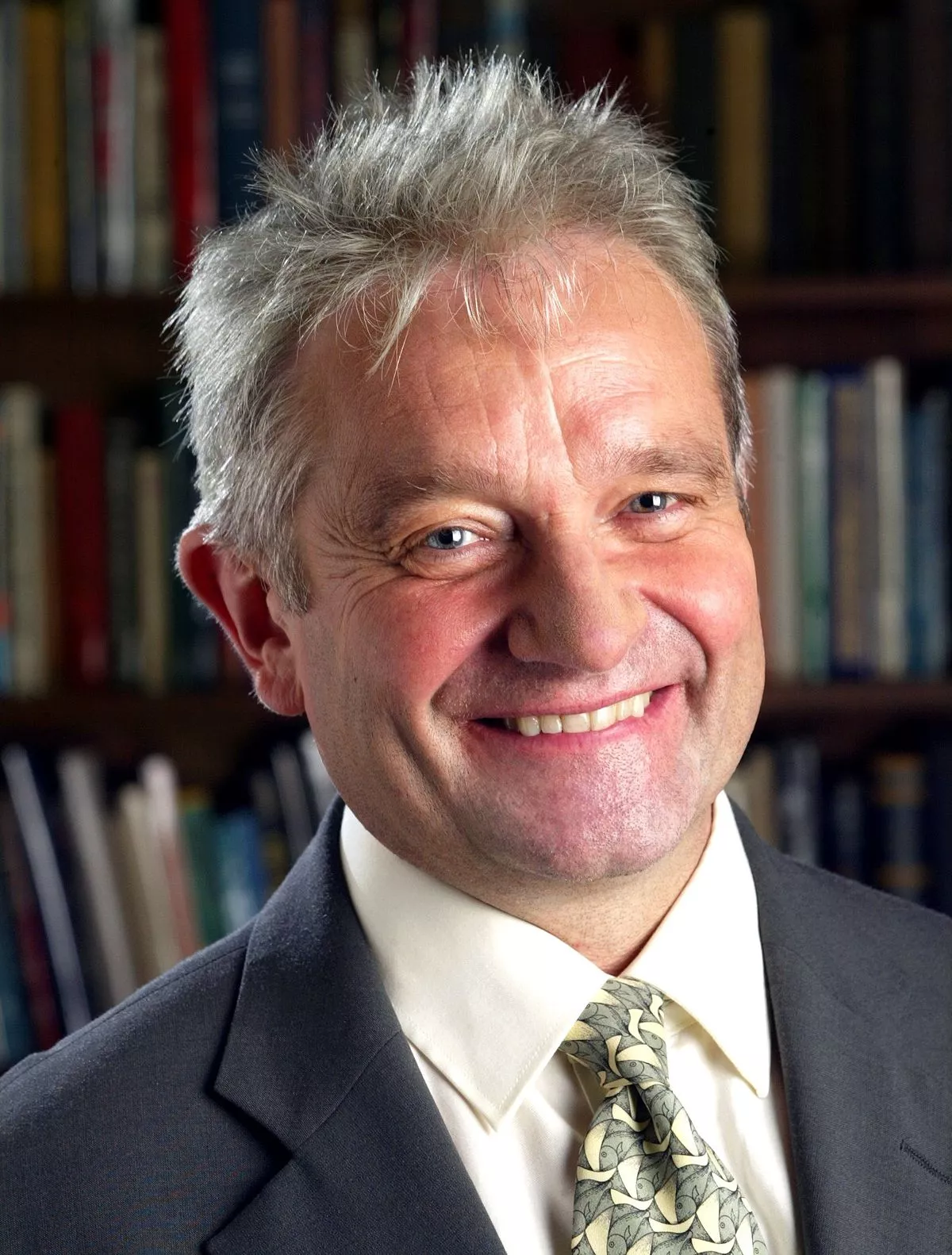 1.
1. Sir Paul Maxime Nurse was born on 25 January 1949 and is an English geneticist, former President of the Royal Society and Chief Executive and Director of the Francis Crick Institute.

 1.
1. Sir Paul Maxime Nurse was born on 25 January 1949 and is an English geneticist, former President of the Royal Society and Chief Executive and Director of the Francis Crick Institute.
Paul Nurse was awarded the 2001 Nobel Prize in Physiology or Medicine, along with Leland Hartwell and Tim Hunt, for their discoveries of protein molecules that control the division of cells in the cell cycle.
Paul Nurse received his BSc degree in Biology in 1970 from the University of Birmingham and his PhD degree in 1973 from the University of East Anglia for research on Candida utilis.
Paul Nurse then pursued postdoctoral work at the University of Bern, the University of Edinburgh and the University of Sussex.
Paul Nurse did not know that his "sister" was in fact his mother until he was in his 50s.
Paul Nurse's "parents" had both already died and his "sister" Miriam, eighteen years his senior, had died early of multiple sclerosis.
Paul Nurse continued his postdoctoral research at the laboratory of Murdoch Mitchison at the University of Edinburgh for the next six years.
In 1987, Paul Nurse identified the homologous gene in human, Cdk1, which codes for a cyclin dependent kinase.
In 1984, Paul Nurse joined the Imperial Cancer Research Fund.
Paul Nurse left in 1988 to chair the department of microbiology at the University of Oxford.
Paul Nurse then returned to the ICRF as Director of Research in 1993, and in 1996 was named Director General of the ICRF, which became Cancer Research UK in 2002.
In 2011 Paul Nurse became the first Director and Chief Executive of the UK Centre for Medical Research and Innovation, now the Francis Crick Institute.
On 30 November 2010, Paul Nurse succeeded astrophysicist Martin Rees for a five-year term as President of the Royal Society until 2015.
Paul Nurse has said good scientists must have passion "to know the answer to the questions" that interest them, along with good technical ability, and a set of attitudes including mental honesty, self-criticism, open-mindedness and scepticism.
Paul Nurse was elected an EMBO Member in 1987 and a Fellow of the Royal Society in 1989 and the Founder Member of the Academy of Medical Sciences in 1998.
Paul Nurse received the Albert Lasker Award for Basic Medical Research in 1998.
Paul Nurse was awarded the French Legion d'Honneur and the Golden Plate Award of the American Academy of Achievement in 2002.
Paul Nurse is a member of the Advisory Council for the Campaign for Science and Engineering.
Paul Nurse is the 2007 recipient of the Hope Funds Award of Excellence in Basic Research.
Paul Nurse is a Freeman of the London Borough of Harrow.
Paul Nurse was appointed Member of the Order of the Companions of Honour in the 2022 New Year Honours for services to science and medicine in the UK and abroad.
Paul Nurse has received over 60 Honorary Degrees and Fellowships, including from the University of Bath in 2002, the University of Oxford in 2003, the University of Cambridge in 2003, the University of Kent in 2012, the University of Warwick the University of Worcester in 2013, City, University of London in 2014 and McGill University in 2017.
Paul Nurse was appointed an Honorary Fellow of the Royal Academy of Engineering in 2012 and Honorary Fellow of the British Association in 2013.
Paul Nurse is an Honorary Liveryman of the Worshipful Company of Scientific Instrument Makers.
Paul Nurse has been a member of the Labour Party for nearly 40 years and is a patron of Scientists for Labour, a socialist society affiliated to them.
Paul Nurse has criticised potential Republican Party candidates for the US presidential nomination for opposing the teaching of natural selection, stem cell research on cell lines from human embryos, and anthropogenic climate change, even partially blaming scientists for not speaking up.
Paul Nurse was alarmed that this could happen in the US, a world leader in science, "the home of Benjamin Franklin, Richard Feynman and Jim Watson".
One problem, Paul Nurse said, was "treating scientific discussion as if it were political debate," using rhetorical tricks rather than logic.
Paul Nurse believes that scientists should speak out about science in public affairs and challenge politicians who support policies based on pseudoscience.